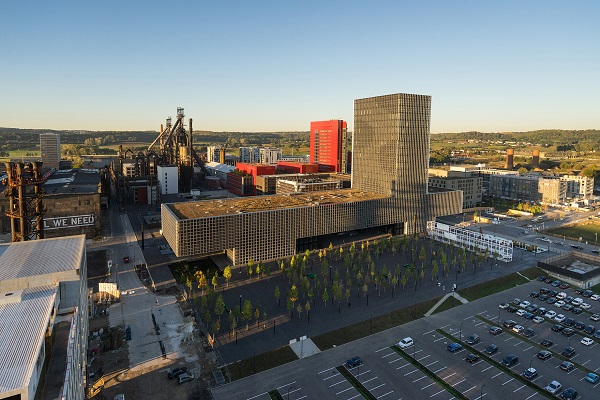
The University of Luxembourg wants to set itself apart as a model of a European Research University for the 21st century with a particularly international, multilingual and interdisciplinary character.
It is thus aiming to become one of the world’s top ten universities younger than 50 years in international rankings within ten years and to stand out in Luxembourg as the driving force behind the country's future in education, research and innovation. This is the vision and core message of the new strategic framework presented today (Thursday 15 December) by University President Rainer Klump. Together with the framework, he also introduced the new rectorate team. Starting in January 2017, geophysicist Tonie van Dam will join the rectorate as vice-rector. She will be mainly in charge of the doctoral training and the international relations of the University.
13 years after its foundation, and more than a year since its move to the new main Belval campus, the University is entering its next phase of development. "The start-up phase is over. To ensure the University's future success, we now need to further professionalise the institution, reinforce its core competencies and focus on developing its priorities," explained the University President.
To this end, as one of his most important personal projects, Klump last year initiated the development of a strategic framework in collaboration with researchers, university teachers, students and the university administration. The result is a ten-page strategy document supported by the entire university community and its bodies. The new Strategic Framework 2026 defines basic values for the University's identity and provides guidance for future research, teaching and administration strategies.
The Strategic Framework is based upon three pillars: digitisation, the European Mission and its embeddedness in Luxembourg. Big data, high-performance computing and cyber security will be overarching themes in all academic fields. The University will continue to expand its ICT capabilities and apply them more widely across scientific disciplines, for instance in personalised medicine, the digital humanities or FinTech, with the aim to equip researchers, graduates and employees to meet the challenges of the digital world. The "University Learning Centre", an innovative type of university library due to open in late 2018 on Belval Campus, will become a hub for digital learning and research.
As the most international university in Europe, uni.lu wants to strengthen its image as a gateway to Europe for prominent partners from, for instance, the USA or Asia. One example is the University's new Robert Schuman Institute, which will host visiting academics from abroad, maintain close relations with EU institutions and participate in the debate on Europe's future in the world. Openness to diversity and commitment to multilingualism remain among the University's central principles.
Last but not least, the University wants to fulfil its special role as the country's only public university and be an engine for driving economic, social and cultural innovation in Luxembourg: Examples are the close collaboration with industry, for instance by way of the new "Luxembourg Centre for Logistics," by reappraisal of the country's history by way of the new Centre for Contemporary History, or the evaluation of the education system via the “Luxembourg Centre for School Development“. Across the board, the researchers wish to collaborate actively with other players in the country, for instance with public research institutions.
Internally, the University wants to boost entrepreneurial thinking among all employees, strengthen quality control and increase transparency in decision-making. The decision on whether current research priorities will shift will be taken after the conclusion of the external evaluation of the University 2017, which is currently underway.








